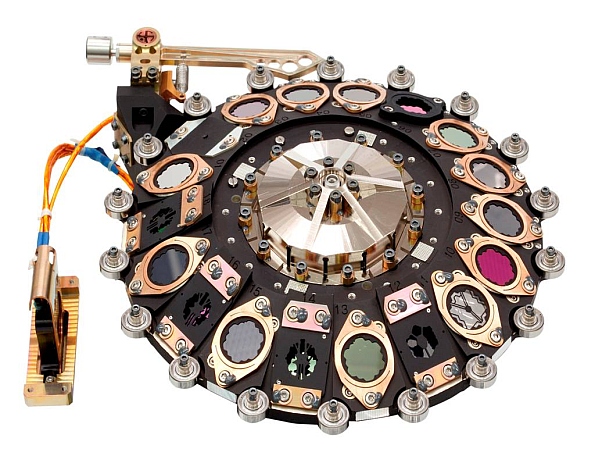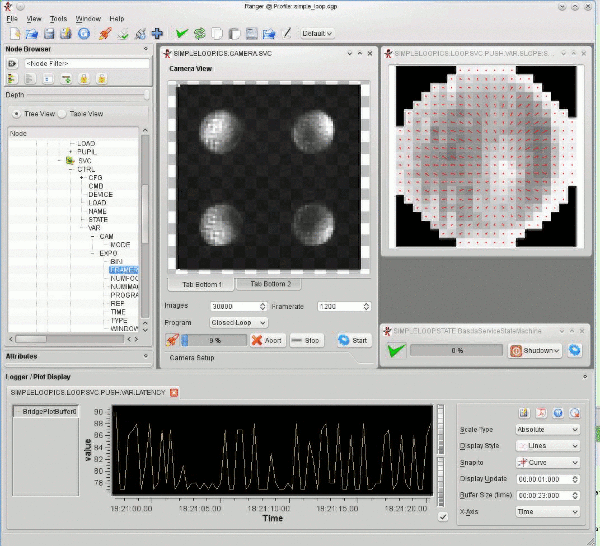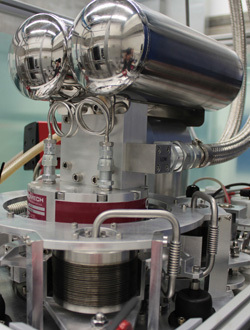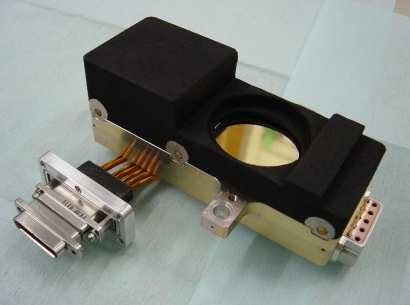| Version 528 (modified by , 2 years ago) (diff) |
|---|
The AstroTechTalk (ger) offers a place to discuss, for all interested colleagues and especially for the technical departments, the project leaders, the administration and the scientists as the ultimately users:
- status of instrumentation projects
- scientific tasks and features of the instruments in construction or planned
- new possible involvements
- technical innovations and developments
- technical problems and their solutions
- logistical problems and their solutions
- how to improve operation and observation
- project standards.
New Time: Always Mondays 15:00 - 16:00
Location: Hybrid -> MPIA Hoersaal + Video-Link
Outline:
- Announcements (news, visitors, etc.) (mainly in German)
- Talk of about 30 min about a selected topic (German or English, will be announced)
- Follow up discussion and questions (German or English, depending on the speaker)
Proposals for talks: Please send an email to "huber -at- mpia.de" or "naranjo -at- mpia.de" - alternatively you might reach us by phone (06221-528331 or -290) or in person (room 111 or 018) at MPIA.
| Date | Speaker | Topic |
| 21.02.2022 | Martin Kürster | MPIA Project Overview This talk will provide an overview of the ongoing astronomical instrumentation projects of the MPIA. It presents * which work packages the MPIA has taken over within the respective consortium which collaborates in development and construction, * the current phase of each project and the overall schedule, * the main characteristics of the instruments, such as type, wavelength, resolution, field-of-view, etc. A brief look at the science planned with each instrument rounds off the presentation. Presentation: German Slides: English Questions: German, English |
| 28.02.2022 | -- | -- |
| 07.03.2022 | Wolfgang Brandner & Wolfgang Gässler | ANDES - more than a mint chocolate Searching for the word ANDES in the internet one of the first products one can find is a mint chocolate. More than 120 astronomers and engineers worldwide are about to change this. They are working on ANDES the ArmazoNes high Dispersion Echelle Spectrograph for the E-ELT, which will cover the wavelength range from the U-band to the near infrared providing precision data to understand exoplanet atmospheres in detail or measure the evolution of fundamental constants (Feinstrukturkonstante) back to the beginning of the universe. The ANDES instrument will consist of a front end including an adaptive optics system, which is picking up the light in the focal plane. Some fiber feed to three spectrographs - UBV, RI, YJH band - and an optional fourth spectrograph for K-band, where our institute with the APEx-department is most interested in. Therefore, we lead a Phase B study of this K-band spectrograph. Transmission spectroscopy is defining the requirements of the K-band spectrograph for us. Other important constraints are the size (volume) and mass, and the highest possible optical throughput. The decision on whether or not to proceed with the K-band spectrograph will happen after the completion of the current Phase B study of the ANDES instrument sometime in 2024. Hopefully it will not end like in Monty Pythons 'Meaning of life' after just one more mint. Presentation: German Slides: English Questions: German, English |
| 14.03.2022 | -- | -- |
| 21.03.2022 | Markus Feldt | SPHERE+ Since 2015, SPHERE has been providing regular data and has not only enabled the consortium of manufacturers to produce well over 100 publications, but has also actually delivered transformative discoveries in the field of exoplanets and planet-forming disks. In one respect, however, its success has been limited: The instrument, which was conceived as a "planet hunter", has found planets, but the ultimate success has - foreseeably - failed to materialise, despite an enormous amount of observation time. However, 6 years of experience provided valuable information about the limiting factors, which have now been reliably identified, as well as possible remedies. This gave rise to the idea of a "SPHERE+" upgrade - an improvement in spectral resolution, as well as an upgrade of the XAO system with a second stage. Presentation: German Slides: English Questions: German, English |
| 28.03.2022 | -- | -- |
| 04.04.2022 | Andreas Bichler (OptoSigma) | TBD |
| 11.04.2022 | -- | -- |
| 18.04.2022 | Holiday | Easter Monday |
| 25.04.2022 | André Boné | Tolerance studies for the Relay Optics of MICADO |
| 02.05.2022 | -- | -- |
| 09.05.2022 | Aline Dinkelaker (AIP) | Astrophotonics |
| 16.05.2022 | -- | -- |
| 23.05.2022 | Armin Böhm | The new fine mechanical Workshop (with guided tour) |
| 30.05.2022 | -- | -- |
| 06.06.2022 | Holiday | Whit Monday |
| 13.06.2022 | Caroline Kulcsar (Institut d'Optique Graduate School) | TBD |
| 20.06.2022 | -- | -- |
| 27.06.2022 | -- | Institute meeting |
| 04.07.2022 | Natalie Fischer | Workshop program at the HdA |
| 11.07.2022 | -- | -- |
| 18.07.2022 | Vianak Naranjo | HAWAII-4K Detector for PANIC |
| 25.07.2022 | -- | -- |
Preview:
DD.MM.2022 - Speaker: Title
TBD 2022: Ulf Seemann (ESO): Calibration Work
Postview:
Presentations from 12.09. - 31.12.2014
Presentations from 01.01. - 31.07.2015
Presentations from 01.08. - 31.12.2015
Presentations from 01.01. - 31.07.2016
Presentations from 01.08. - 31.12.2016
Presentations from 01.01. - 31.07.2017
Presentations from 01.08. - 31.12.2017
Presentations from 01.01. - 31.07.2018
Presentations from 01.08. - 31.12.2018
Presentations from 01.01. - 31.07.2019
Presentations from 01.08. - 31.12.2019
Presentations from 01.01. - 31.07.2020
Attachments (11)
- instrum8_gr.jpg (82.6 KB) - added by 10 years ago.
- instrum4_gr.jpg (104.4 KB) - added by 10 years ago.
- pedv3_gr.jpg (213.9 KB) - added by 10 years ago.
- alfa3.5.gif (235.6 KB) - added by 10 years ago.
- CIAO.jpg (3.8 MB) - added by 8 years ago.
- linc_nirvana_labor.jpg (255.2 KB) - added by 8 years ago.
- MATISSE.jpg (43.1 KB) - added by 8 years ago.
- miri_fm_filterwheel.jpg (145.6 KB) - added by 8 years ago.
- PACS-Chopper.jpg (80.0 KB) - added by 8 years ago.
- simple_loop.gif (965.4 KB) - added by 8 years ago.
- teaser.jpg (13.5 KB) - added by 8 years ago.
Download all attachments as: .zip







